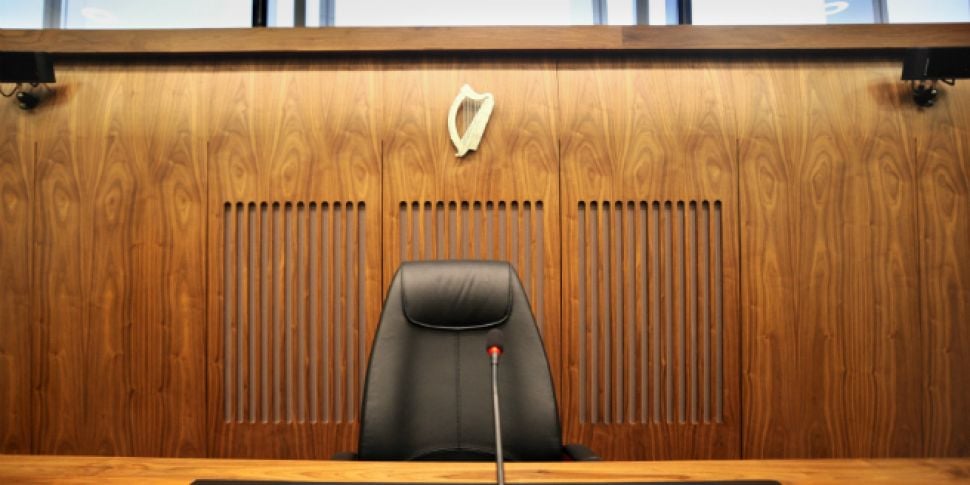Five children under the age of six, including a newborn baby, were taken into state care in County Clare following findings that the children had been physically, sexually and emotionally abused, according to a new report published today.
The report is one of 24 case reports published by the Child Law Reporting project today. In the report of this specific case it details how the court found that the new born baby would be at risk of abuse had the child not been removed from its parents’ custody within two days of birth.
The report states:
“The court found that the two eldest had been subject to physical, emotional and sexual abuse, that the two middle children probably had been abused, and that the baby could well have been had she not been removed from her parents two days after birth ... the court heard that the two oldest children, aged four and six, had made a number of disturbing allegations about being physically, sexually and emotionally abused, and had said they did not want to go home.”
The allegations were first made to foster carers and social workers, and later a guardian appointed by the court when the children were first taken into care.
The report notes that one of the older boys later told his guardian that a social worker “made him say things that weren’t true.” The parents’ barrister said this threw the CFA’s case into question and requested an independent psychologist’s assessment of the children’s allegations.
The solicitor for the CFA and GAL opposed this, saying further questioning could traumatised the children. The solicitor proposed that the psychologist examined the existing records.
The case was adjourned and upon its resumption the social worker in question was unable to give evidence due to illness.
The father of the children told the court the children were unduly influenced by social workers and other professionals involved in the case. The father said the allegations were “all lies”. The children’s mother did not give evidence.
The judge spoke with the boys privately and told the court this. The judge said that as the older boy was leaving following the discussion he told the judge he wanted “to stay with [the foster carer] forever”.
Making his orders, the judge said: “The horror of the lives of [A], [B], [C], and [D] is unimaginable. They lived in a bad place with bad people. The only order that can be contemplated is a full Care Order for each child.”
The judge congratulated representatives of the CFA and the guardian for their commitment and care of the children, noting that this work was at all times sensitive to the needs of the children.
“The suggestion that the allegations were the fabrication of social workers, experts and foster carers is rejected and has no merit,” the judge said.
The case is detailed as part of The Child Care Law Reporting Project. The prject reports on child care proceedings taken in court by the HSE.
The report presents 24 cases.
These include
- A case in which two abandoned African girls were taken into care after they arrived in Dublin without parents or guardians. The girls had run away from their father after he called them witches for reporting that the father’s uncle raped one of the girls. The two girls arrived in Dublin with no family or friends. The judge granted an Interim Care Order.
- A judge in a rural town made a care order for two children, whose parents had intellectual disabilities, until they were 18. The judge heard evidence forma psychologist who had assessed the children found that their emotional and social functioning was very poor and this would become an issue again once they reached puberty and adolescence. The psychologist found the parents were unable to offer the necessary emotional input and stimulation the children needed in early life, and this would make it very difficult for the parents to cope. The parents were described by the CFA solicitor as “very decent people” and the court heard “It is not their fault they are unable to meet their children’s needs.” The psychologist agreed with this and said the children should spend time with their parents. The father asked for a review before the children reached 18, which was granted by the court.
Dr. Ann Coulter, Director of The Child Care Law Reporting Project said: “I think it’s very important that people look at the vulnerabilities that do exist in certain groups of families, that they understand they need for early intervention so that the children who do come to the attention of social work services, where it might be possible to keep them out of care if possible, to keep them with their families, with supports - I think that these cases do demonstrate the very complex human problems that lead to children going into care."
Care orders place a child in the care of the Health Service Executive (HSE), either temporarily or permanently. The HSE applies to a court for these orders when they are dealing with children who they feel are at risk and in need of state care.
The report finds that there is “great variations in the number of applications in different parts of the country” with large cities and towns making up the bulk of applications for care. Dublin and Cork city account for almost half of all applications. Smaller towns had far lower numbers of applications. Tullamore had just 13 applications, while Monaghan and Mullingar had 30 and 42 respectively.
There were 8,714 applications in 2013, down roughly 600 from 2012 total of 9.315. 83 per cent of applications – 7,266 - were granted, a figure similar to last year.









